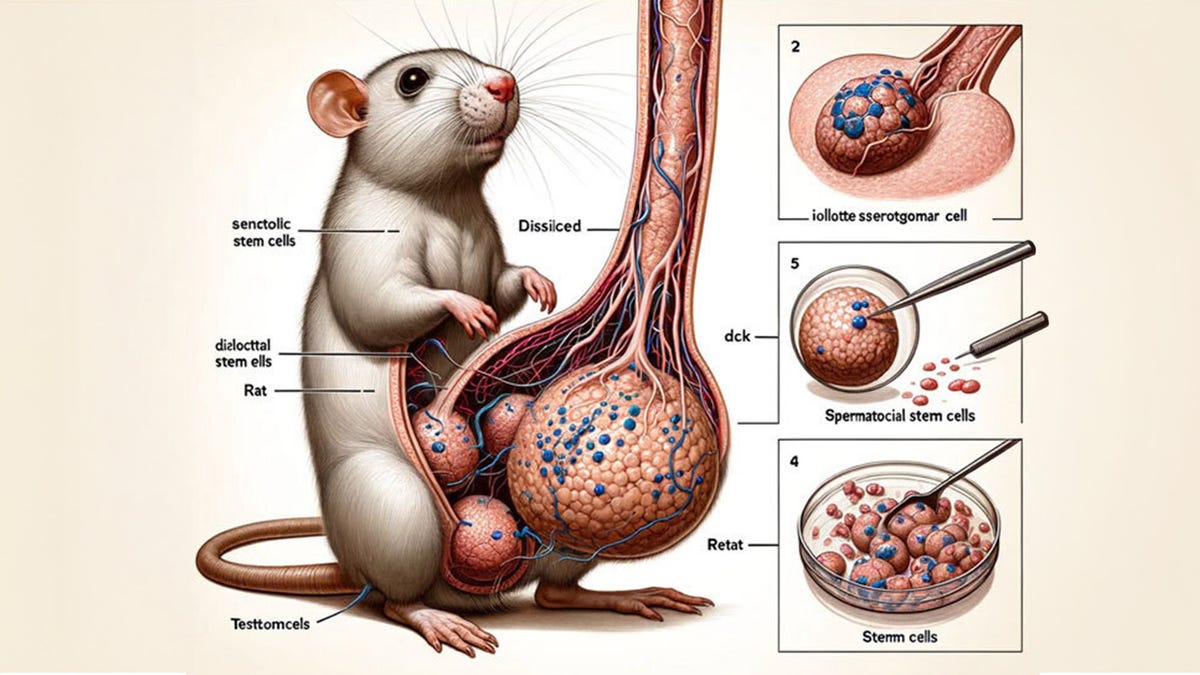Bogus Imagery Featuring AI-Generated Rat Diagram Published in Scientific Journal
Published in Frontiers in Cell and Developmental Biology
This week, the open-access scientific journal Frontiers in Cell and Developmental Biology released research that included misleading imagery generated by Midjourney, a popular AI image generator. While the written content of the paper seems credible, the inaccurate and grotesque depictions of rat testes, signaling pathways, and stem cells raise concerns.
Inaccurate AI-Generated Rat Diagram
The AI-generated rat diagram in the research paper portrays a rat with upper-body parts labeled as “senctolic stem cells.” The diagram also labels what appears to be a rat penis as “Dissilced.” The inaccuracies in the imagery become apparent upon closer examination.
Research Integrity and Peer-Review Process
According to Frontiers’ editor guidelines, manuscripts undergo initial quality checks by the research integrity team and the handling editor before the peer-review process. The fact that such inaccurate imagery made its way into the published paper raises questions about the effectiveness of the review process.
AI-Generated Imagery Errors and Ethical Concerns
The AI-generated imagery in the research paper clearly falls under the categories of mislabeled figures and errors that could alter the conclusions. While the paper acknowledges that the images were generated by Midjourney, Frontiers’ policies allow for corrections if such images contain errors. The discrepancies highlight the challenges in conveying scientific accuracy through AI-generated content.
Experts Miss AI-Generated Content
This incident serves as a warning about the potential for AI-generated content to bypass the discerning eyes of reviewers. A study conducted by Northwestern University and the University of Chicago revealed that human experts were fooled by ChatGPT-produced scientific abstracts 32% of the time. The rise of AI has led to scientifically inaccurate imagery infiltrating scientific publications and news articles.
Caution for Proper Use of AI-Generated Content
While AI has the potential to enhance the sharing of scientific research, especially among non-English-speaking scientists, it is crucial to establish best practices to maintain scientific integrity. The incident discussed here illustrates that AI-generated articles could create a crisis in scientific integrity, and it is a matter that needs immediate attention.
Concerns for Scientific Accuracy and Integrity
While amusing cases of bogus research have emerged in the past, the constant flow of fraudulent papers points to a potential crisis in scientific integrity. The inclusion of AI-generated images in this study has drawn significant attention that could undermine the credibility of the entire research.
Reference Link: https://gizmodo.com/fake-research-paper-based-on-star-trek-voyagers-worst-1823034838


